6. Shame (2011, dir. Steve McQueen)
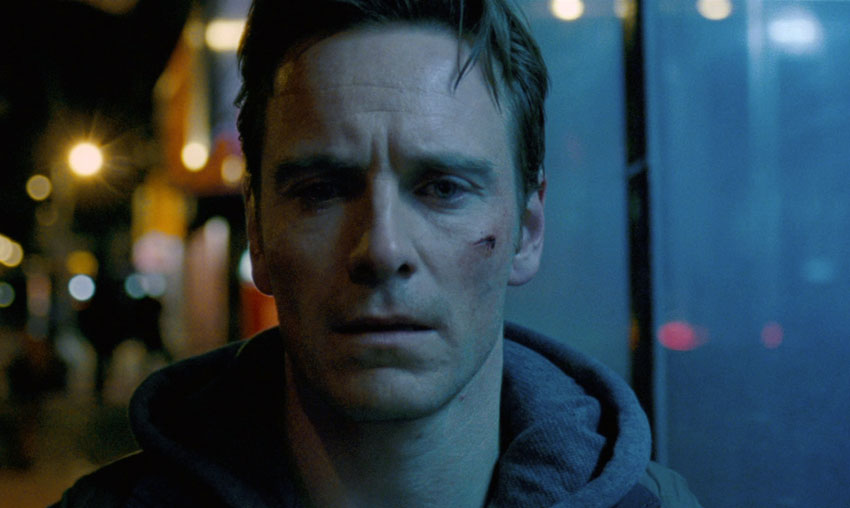
At a casual glance, Brandon (Michael Fassbender) seems like a man who has his life set; good looking, in shape, good job, the works. However, further scrutiny would unveil the skeletons in his closet.
Brandon is a sex addict – from a trove of pornography and evenings with prostitutes to bathroom breaks at work to masturbate, Brandon cannot live without orgasms on a regular basis. Things become his sister unexpectedly drops in to visit. The secret that has cornered him to seclusion are now at risk of exposure.
Named by Roger Ebert as the second best film of 2011, Shame is a truly remarkable examination of loneliness, and the cornering pain it inflicts. Set in New York City, no less, some could argue that Brandon is Travis had the latter been less repressive about his sexuality. Brandon suffers social alienation much how Travis does – there is a particularly painful moment when Brandon starts a relationship with a coworker.
During a potentially intimately sexual moment, Brandon turns his back on this woman in favor of something more impersonal and temporary, showing just how much his way of life has impacted his people skills.
7. Star 80 (1983, dir. Bob Fosse)
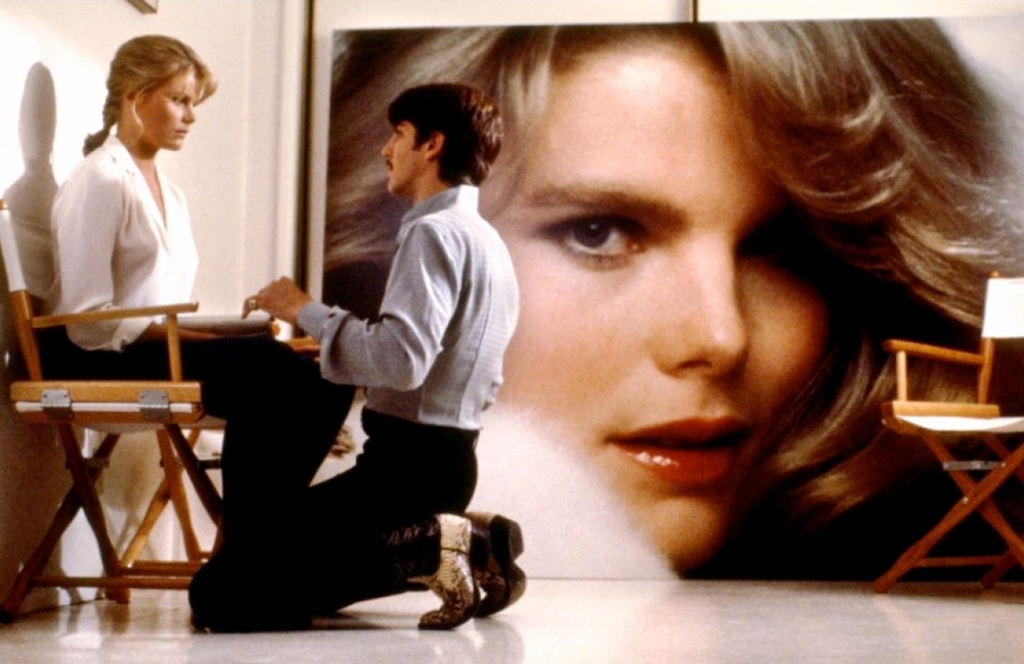
The only biopic on this list, Star 80 recounts the truly tragic story of Dorothy Stratten. Played by Mariel Hemingway, Stratten was a small-town girl who had a run-in with a man named Paul Snider.
Convinced by the potential of her physical beauty, he begins a relationship with her and simultaneously helps her make a name for herself as a model for Playboy Magazine. She would go on to become the 1980 Playmate of the Year, and her success was continuing to climb to new heights while Snider’s life proved unremarkable. Stratten’s career was tragically cut short when she was murdered by Snider
Though not up to par with his masterworks Lenny and All That Jazz, Star 80 is still a remarkable work from Bob Fosse, and is one of the most disconcerting (and overlooked) viewing experiences.
With Taxi Driver in mind, one cannot help but wonder if Travis and Betsy’s relationship (had it gone further) would have wound up similar to that of Stratten and Snider’s – some may even wonder how Taxi Driver didn’t end up like Star 80, considering the level of Travis’s alienation, unstable mental state, and his fixation that develops on Betsy. Granted, Travis’ motives, though clouded, are genuine enough, whereas Snider’s motives are malicious from the start.
8. Straw Dogs (1971, dir. Sam Peckinpah)
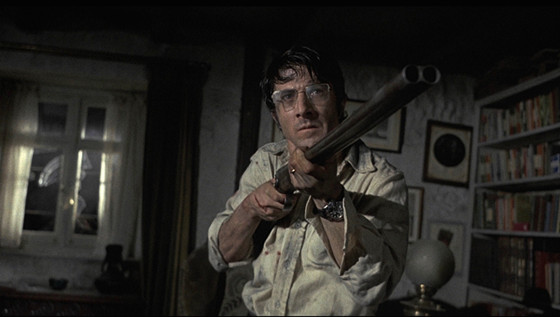
David and Amy Sumner (Dustin Hoffman and Susan George) move to the beautiful English countryside where Amy grew up. David, however, finds himself rather unwelcome at their new home as the outsider. The locals begin giving the couple more and more trouble, the behavior gradually escalating into disturbing and dangerous territory.
Subsequently, David finds his marriage on rocky ground, as Amy is angered by David’s passive attitude that allows the threats to continue. The pressure soon mounts to the point of do-or-die, when the local hoodlums conduct a siege on the Sumner home, and it is here that David reaches his boiling point.
Some could call 1971 the most notoriously violent year in cinema with releases of films like A Clockwork Orange, Dirty Harry, and Straw Dogs, the latter of which might be the most morally disturbing – a character study of a man driven to brutal violence, like Taxi Driver. What makes both of these films even more unsettling, though, is that there is a debatable justification in their actions.
With Travis, in spite of the context, his rampant vigilantism does result in freeing Iris from a sordid and risky lifestyle, as well as the dismantling of criminal activities within Iris’s brothel.
In Straw Dogs, the lives of both David and Amy were in significant danger, and most likely would have been killed if David hadn’t taken action, regardless of the level of brutality. The best thing about both scenarios, though, is that there is no push for an agenda – the merits (or lack thereof) are purely up to the viewer.
9. Vertigo (1958, dir. Alfred Hitchcock)
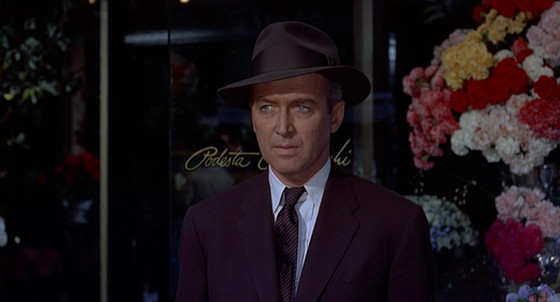
Scottie (James Stewart) is an ex-police detective suffering from acrophobia, whose condition led him to retire after it resulted in the death of a colleague. Now, a friend from college needs Scottie’s detective skills, as his wife, Madeline, has been exhibiting peculiar and disconcerting behavior. Scottie hits the road and begins following Madeline, unbeknownst to her. Like his friend, Scottie is confounded by what he observes, and it sends him into a psychological rabbit hole of obsession around this woman.
Vertigo is a legend in cinema in which everything to say about it has been said time and time again. It has stood the test of time and continues to influence films to date. With this in mind, it is of no surprise that Vertigo’s influence landed its way in Taxi Driver, with both protagonists in a maddened world of obsession – around a woman, no less. Yet there are more parallels to the two films, one of the most notable being a focus on driving.
A great chunk of Vertigo’s first third consist of Scottie simply driving around San Francisco, just like Travis’s endless cab rides around New York City. Sometimes it seems almost as if they’re driving in circles, further down the spiral.
10. The Wrestler (2008, dir. Darren Aronofsky)
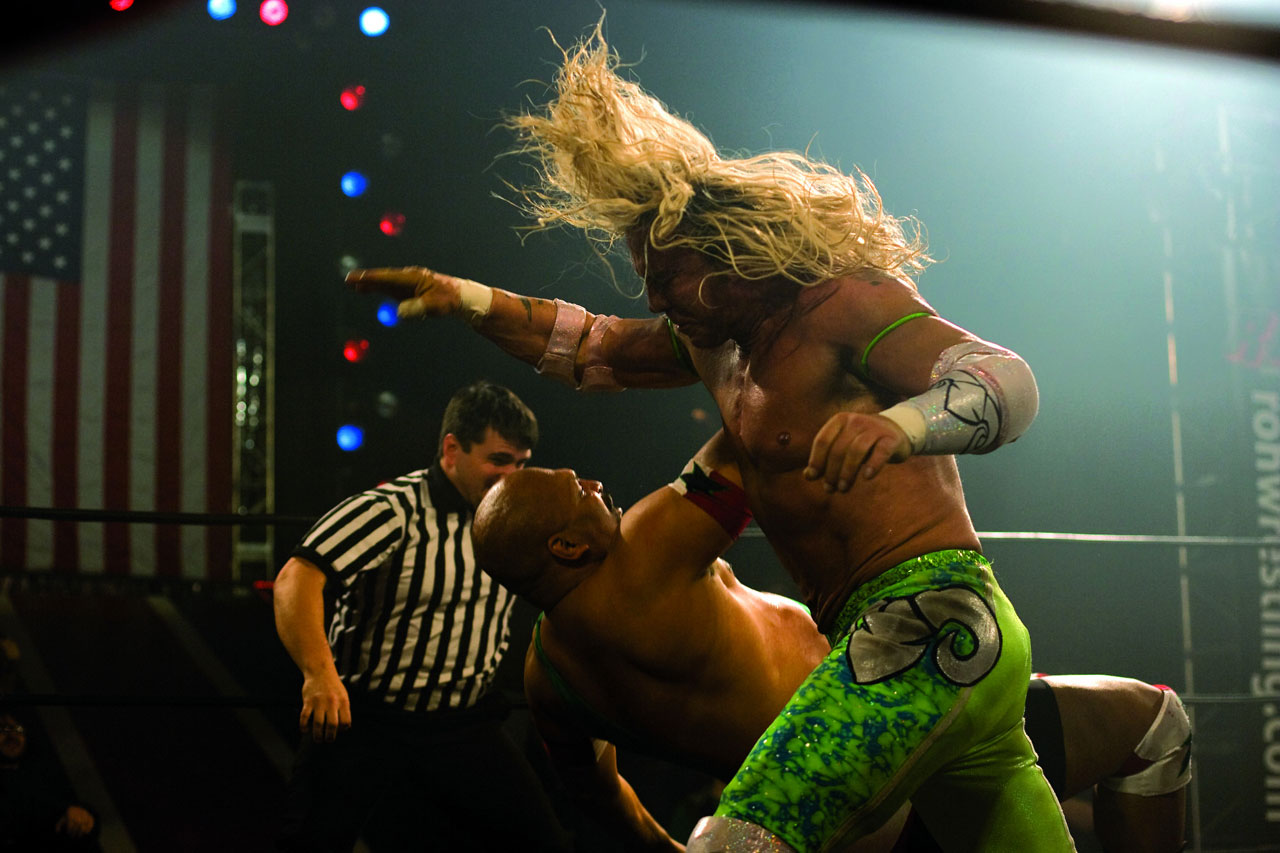
Once upon a time, he was somebody, known as pro wrestler Randy “The Ram”. Nowadays, he’s just back to being Randy Robinson, a shadow of his former self – washed up, past his prime, and enduring the consequences of his past mistakes, which has resulted in estrangement from his daughter, who wants absolutely nothing to do with her father. He is given an opportunity to regain his stardom when he is offered a rematch against his former rival wrestler.
During preparation for the comeback match (which involves steroid use) Randy suffers a heart attack, and is strictly advised that wrestling will only worsen his condition. Retired from wrestling, Randy works in a supermarket deli and lives in a shabby mobile home. No matter what, though, it seems there is nothing he wouldn’t give for his former glory.
Contrary to the surrealism and artful disorientation of his previous films, The Wrestler is Darren Aronofsky’s most reserved film to date, and possibly his best. Further empowered by Mickey Rourke’s comeback performance, it is, like Taxi Driver, a moving character study of loneliness and entrapment in one’s skewed world view.
Granted, The Wrestler is a much more emotional film with its focus on Randy’s attempt to rekindle his relationship with his daughter. Unfortunately, things don’t work out between them, and Randy, like Travis, decides that there is nothing else to live for and returns to the ring, risking self-destruction. Randy’s fate is ultimately ambiguous, but if he has died, at least he died doing what he loved.